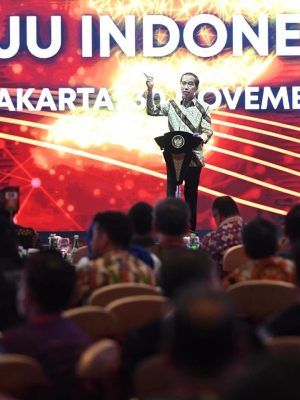Indonesia’s President Joko “Jokowi” Widodo says his nation will appeal a recent ruling from the World Trade Organization (WTO) that favored the European Union in a dispute over Indonesia’s ban on nickel ore exports.
Speaking at an investment event in Jakarta on Wednesday, Jokowi vowed that the WTO ruling would not prevent his government’s determination to process more raw materials at home and that he had ordered his government to launch an appeal.
“Even though we lost at the WTO on this nickel issue… it’s okay. I have told the minister to appeal,” Jokowi said, according to a Reuters report.
Indonesia, previously the world’s biggest exporter of nickel ore, announced a ban on the export of the unprocessed mineral in August 2019, and introduced domestic processing requirements that have required businesses to process or purify the raw materials in Indonesia before export. These measures came into effect at the start of 2020.
This prompted the European Union to launch a challenge at the WTO in November 2019, arguing that Indonesian export restrictions on raw materials were unfairly harming its stainless steel industry.
The WTO panel ruling concurred with the European claim, stating that neither the prohibition of nickel exports nor the domestic processing requirement (DPR) was in line with global trade rules. It “found that the export ban is the most trade-restrictive measure that could be applied and that the DPR is highly trade restrictive.” While an exception could have been made if the restrictions were applied temporarily to relieve “a critical shortage of an essential product,” Indonesia’s export ban did not fulfill this criterion.
In a statement Wednesday, the European Commission said that it welcomed the WTO’s ruling that Indonesia’s export restrictions were not compatible with international trade rules. “I expect Indonesia to comply with their WTO obligations and remove these measures immediately,” Valdis Dombrovskis, the EU’s executive vice president and trade commissioner, was quoted as saying in the statement. “The EU supports the rights of all countries to economic development, but this does not give a license to set aside WTO rules.”
The WTO ruling poses a direct challenge to the Jokowi administration’s policy of economic nationalism: i.e., its desire to ensure the country’s raw materials should be developed domestically rather than exported to the benefit of foreign industry. This in turn flows from the country’s anti-colonial tradition, which draws a direct line from the exploitations of colonial rule to the contemporary power of international capital.
The purpose of the export bans is to encourage foreign companies to invest in nickel smelters and other processing facilities in Indonesia, to create jobs and increase how much the country earns from the export of vital raw minerals. Jokowi has also announced possible bans on the export of unprocessed bauxite, tin, and copper. “We really want to stop exporting raw materials because there is no added value and there will be no job creation,” he said in October of last year.
Whether the spoils of these resources would be distributed equitably within Indonesia is an open question, of course, but it is clear that Jakarta views the development of its natural resources as a question of equity between the Global North and South. “We want to be a developed country, we want to create jobs,” Jokowi said, according to Reuters. “If we are scared of being sued, and we step back, we will not be a developed country.”
Even if its appeal fails, it is unclear whether Indonesia would comply with the WTO ruling. After all, powerful countries frequently ignore the body’s rulings when it is convenient to do so, and it is exactly the desire to level the international economic playing field that has motivated the export bans in the first place.
The fact that Indonesia enjoys growing international economic leverage due to its possession of valuable resources like nickel will make this a worthwhile issue to follow in the months and years to come.

































